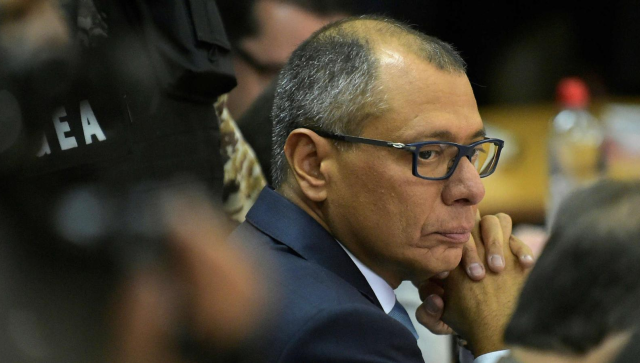In response to the Venezuelan government’s proposal to release six political opponents who had sought refuge in the Argentine embassy in Caracas, in exchange for Ecuador granting a safe-conduct for Glas, the Presidency of Ecuador declined the possibility, indicating in a statement that negotiations of that type “would never be possible.”
The administration of Daniel Noboa maintained that the former vice president, “like other people responsible for crimes that have affected Ecuadorian families, will continue to serve his sentence in prison, in strict compliance with what is established by law.”
Jorge Glas, considered as a symbol of judicial persecution or “lawfare” in Ecuador, was temporarily granted early release on November 28, 2022, after the unification of two prison sentences of six and eight years for the Odebrecht and Bribery cases; however, the measure was revoked.
Early this year, the court ordered his arrest for alleged embezzlement in the case called Reconstruction of Manabí, currently probing into alleged embezzlement in public works following the 2016 earthquake.
Glas had been in safe haven at the Mexican embassy in Quito from December 2023 until April 5 of this year, the day officers raided the diplomatic legation to capture him by order from the Ecuadorian president, Daniel Noboa.
The coordinator of the International Committee for the Liberation of Glas, Sacha Llorenti, said that a delegation from the Inter-American Court of Human Rights (IACHR) visited the former official on October 28 in La Roca prison in Guayaquil, with no relevant statements on the issue released so far.
Llorenti urged IACHR to issue a decision as soon as possible, given Glas’s health conditions, exacerbated by he not being able to access Ecuadorian institutions and the need to guarantee his life and integrity, as well as the restoration of his asylum status.
More than 220 personalities from 15 countries, former heads of state, lawyers, congressmen, academics and representatives of international organizations and social movements signed a letter in which they asked the IACHR to extend the precautionary measures in force for Glas.
The assault on the Mexican embassy in Quito led to the two countries severing ties and Mexico lodging complaints at the International Court of Justice (ICJ).
Mexico accused Ecuador of violating international norms on the inviolability of diplomatic missions, while Noboa’s government justified the invasion, saying that it was an exceptional and isolated event that sought to capture a “common criminal,” referring to Glas.
ied/arc/avr









